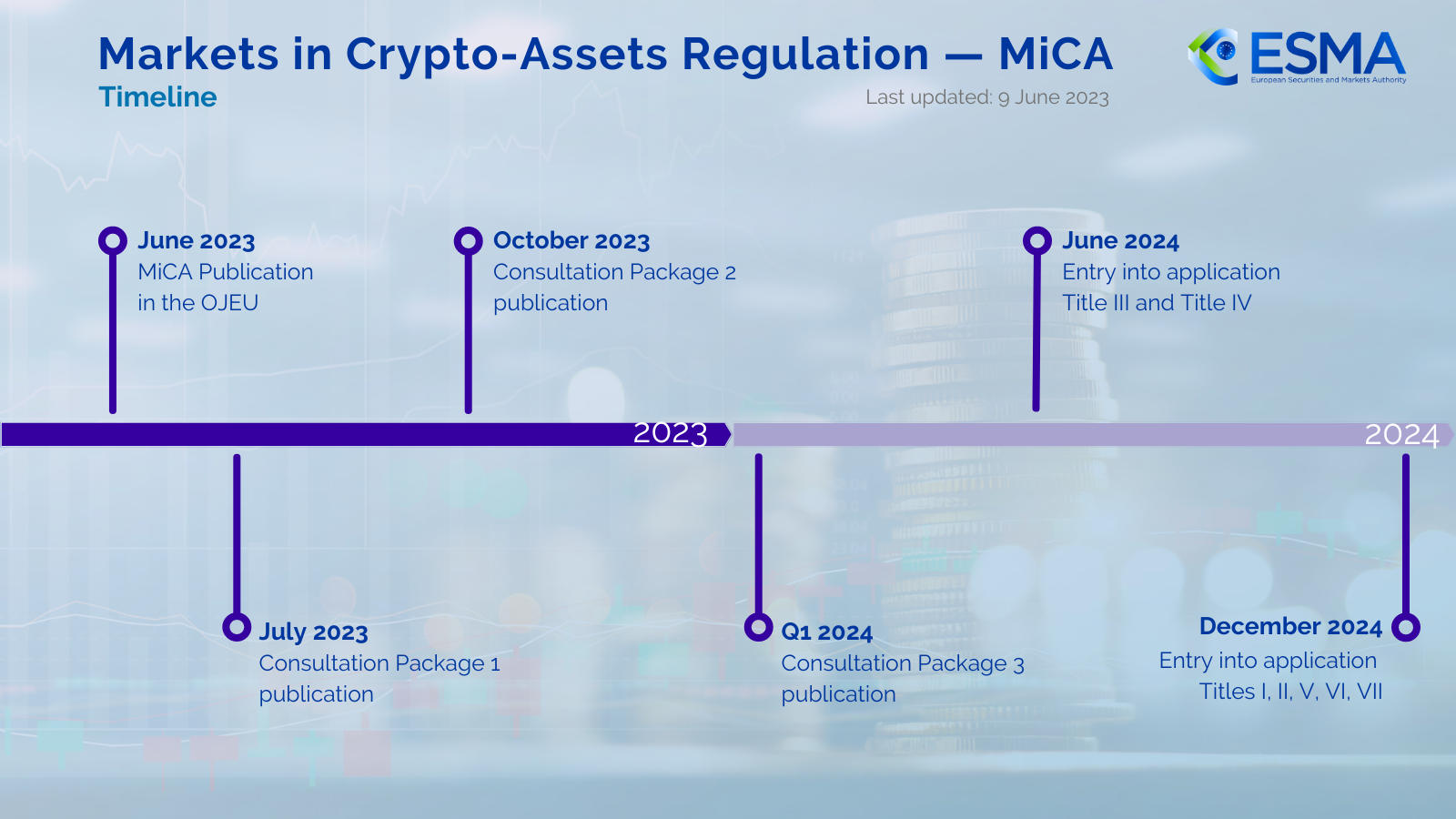Table of Contents
Not only are crypto companies getting ready for new crypto regulations in Europe, but so are authorities, who are bolstering their ranks as the Markets in Crypto-Assets (MiCA) comes into effect on June 30.
There are openings for crypto specialists at the European Banking Authority (EBA), the European Union's (EU) financial agency responsible for regulating stablecoins through the region.
One expert will oversee the crypto and decentralized finance (DeFi) markets, another will help classify crypto assets according to the new legal categories, and a third will oversee the application of cybersecurity and crypto regulations. The EBA is seeking candidates for these three positions.
The impact of the MiCA framework is significant. Regulations regarding stablecoins have taken effect from June 30, and by December, regulations for crypto service providers will be operational.

All entities in the crypto market must prepare and ensure compliance.
That implies that regulators and crypto platforms will kick stablecoins out of the EU markets if they don't follow the standards regarding governance, custody, and reserve needs.
While there may be some confusion in the business world about the practical applications of the guidelines, rest assured that efforts are ongoing to provide clarity and support.
The EBA and other regulatory bodies are committed to helping businesses navigate these changes.
The EBA spent years working out the kinks in MiCA's implementation and released the final recommendations in June.
The banking supervisor is responsible for ensuring that national authorities adhere to the final guideline now that it has been released.
The EBA will likewise influence any future laws about DeFi.
Although MiCA does not cover decentralised protocols, the European Commission must examine DeFi and determine whether regulation is necessary.
The EBA monitors the cryptocurrency market and may provide the Commission with its findings.
Crypto Firms Brace for Challenges
The cryptocurrency business is facing a crucial period. It must prepare for several new rules, with MiCA being a key focus. The urgency of this preparation cannot be overstated.
One of the openings also mentions the EBA's role in overseeing the Digital Operational Resilience Act.
Under this regulation, financial institutions, including crypto service providers, will have their tech security tested more stringently, driving up regulatory expenses for businesses.
It's crucial to note that businesses must have met the requirements of the Digital Operational Resilience Act by January. This deadline underscores the urgency of compliance with this important regulation.
In response, crypto exchange Bitstamp announced last week that it will remove from its platform any stablecoins priced in euros that do not adhere to MiCA, such as the EUR-denominated stablecoin EURT.
Bitstamp will not list any new EMTs that don’t meet MiCA requirements, nor will it engage in any marketing of them, the firm said.
Binance warned its users of disruptions in stablecoins. In a recent email to its clients, the exchange said it "will not delist these stablecoins. […] We will implement certain restrictions for EEA users but only on certain products, and we will offer alternatives with regulated stablecoins or other crypto assets.”
I just wanted to take a moment to address one of the bigger questions raised about our strategy for the upcoming MiCA stablecoin rules.
— Richard Teng (@_RichardTeng) June 3, 2024
Please be assured that Binance won't delist any unauthorized stablecoins on spot but will limit their availability for EEA users only on…
The cryptocurrency business is facing a crucial period. It must prepare for several new rules, with MiCA being a key focus. The urgency of this preparation cannot be overstated.
One of the openings also mentions the EBA's role in overseeing the Digital Operational Resilience Act.
Under this regulation, financial institutions, including crypto service providers, will have their tech security tested more stringently, driving up regulatory expenses for businesses.
It's crucial to note that businesses must have met the requirements of the Digital Operational Resilience Act by January. This deadline underscores the urgency of compliance with this important regulation.









